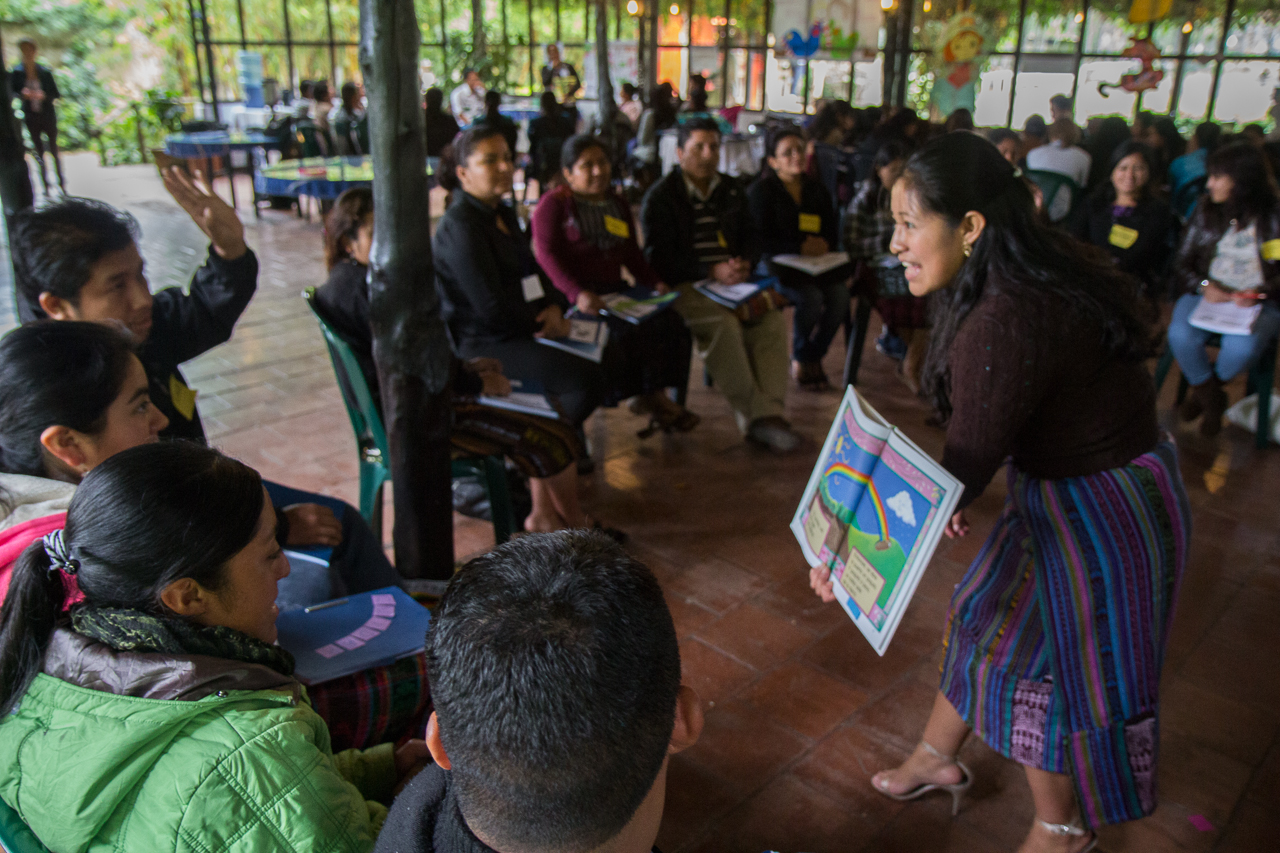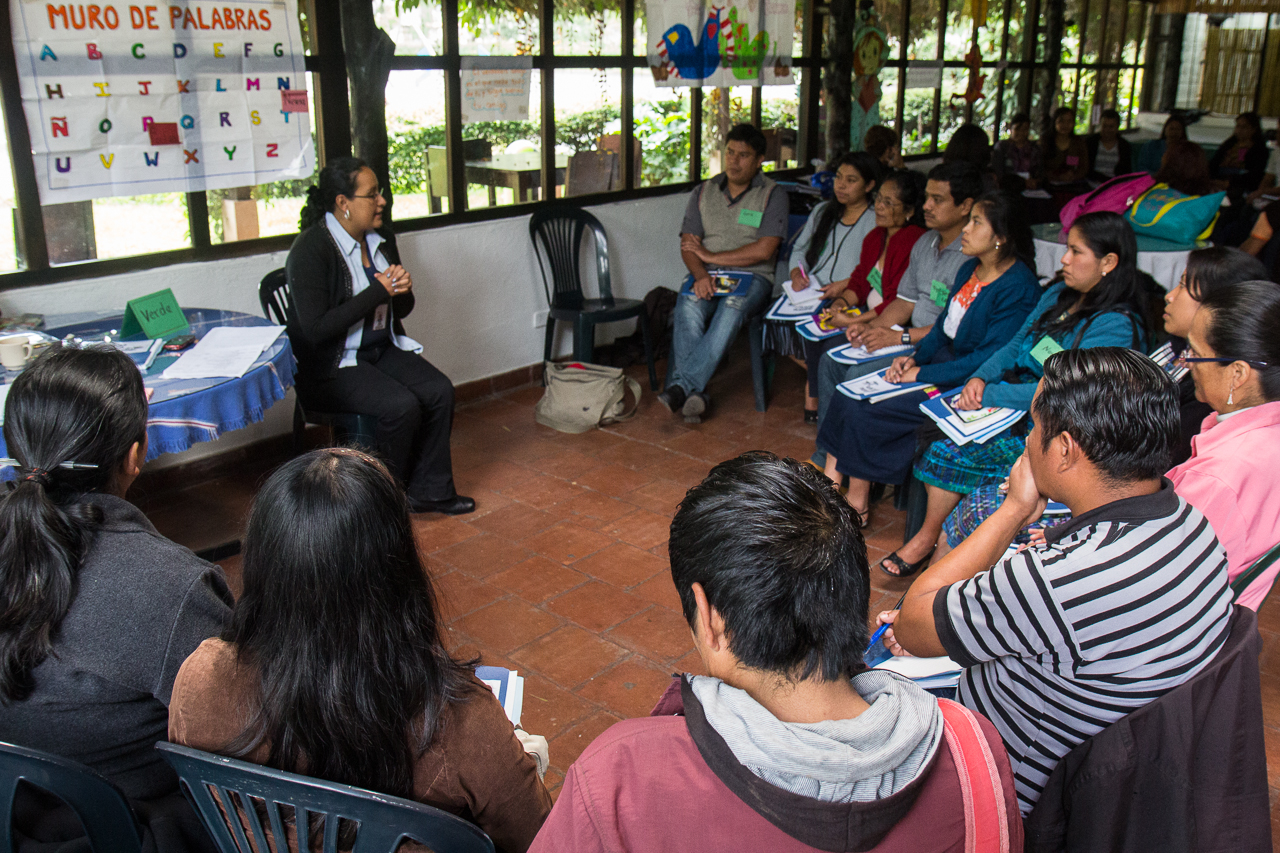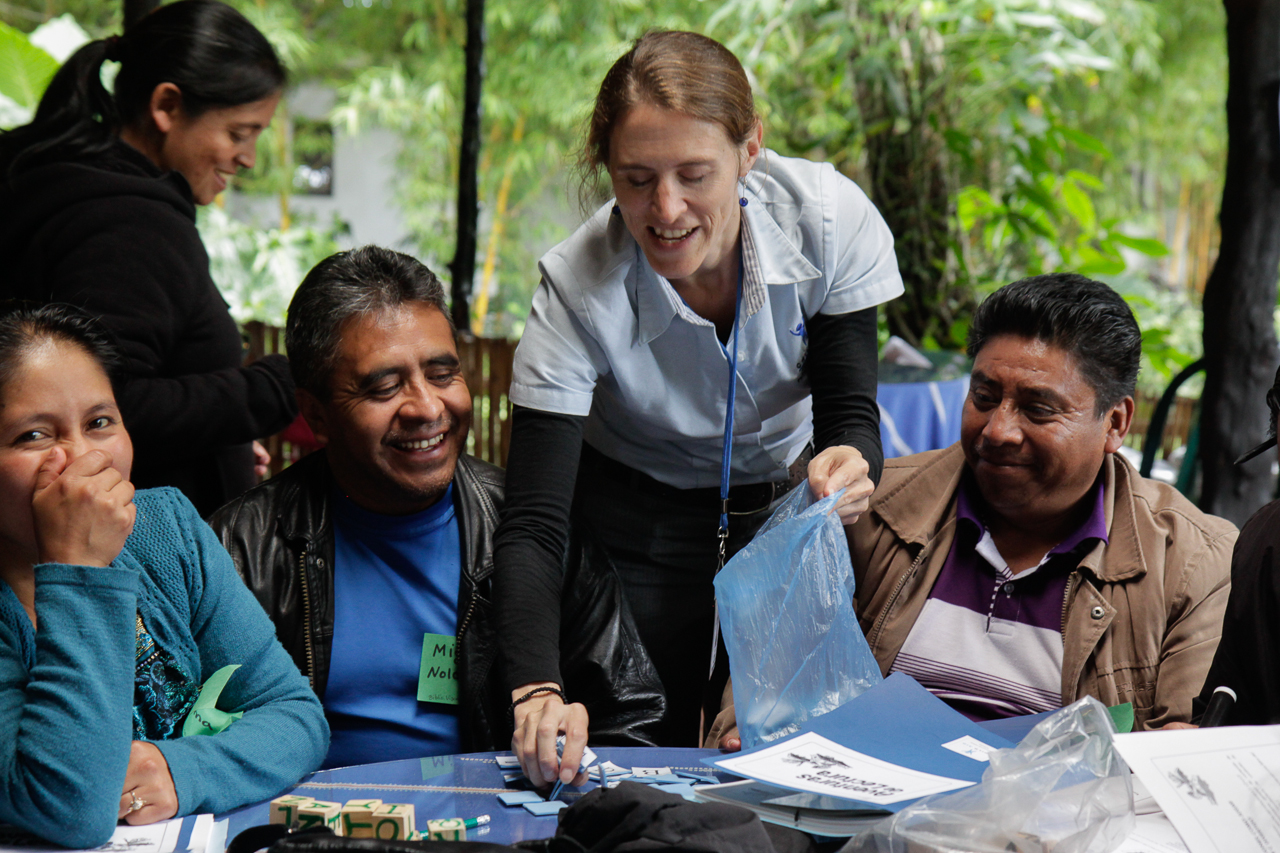
The Guatemalan school year ends in October and as schools begin to wind down, Child Aid staff and partner libraries are getting ready to launch another year of Adventuras de Lectura (Adventures in Reading), Child Aid’s school break reading program.
This past week, forty-seven librarians gathered in Antigua for the first of three Adventures in Reading workshops. They came to learn the basics of how to plan and run the program in their libraries but also to get ideas for planning weekly themes, selecting books for different reading levels and creating activities that help get kids involved in reading. In addition, they received a new packet of storybooks to take back to their libraries and use in the program.
“In the communities where we work, many of our children don’t have the habit of reading,” says Rigoberto Chacach, coordinator of two community libraries near Tecpan, Chimaltenango. “During the vacations, the kids simply stay at home or hang around and they don’t have a lot to do. With this program, we have a plan for how to get kids to the library, capture their attention and develop different activities for them.”

“The most important goal of the program is that the students continue to enjoy reading during their vacations,” adds Child Aid Library Coordinator Carlos Pos. “In this country, kids don’t have many opportunities to be read to and have contact with books, especially during the break. So when the librarians are reading to the kids every day, they really enjoy it.”
Started seven years ago with a single library in the community of El Tejar, Adventures in Reading is Child Aid’s oldest reading program. This year, 36 participating libraries from around Guatemala will host programs, including school, municipal and community libraries.
Most programs are between four and six weeks long, depending on the size of the library, with a different theme each week. Librarians plan a mixture of activities to engage students and make the experience fun. There are read-aloud sessions, word games, writing activities and guided discussions that help the students develop better comprehension skills and encourage them to use their imagination.
For many of the librarians attending the workshop, Adventures in Reading is their first opportunity to learn how to plan and run reading activities out of their libraries.
Librarian Gloria Amalia Muños Garcia has been working at the Aldca San Miguel Morazan municipal library in El Tejar for four years and is getting ready to run her third Adventures in Reading program. When she started, she says, her library had very few resources and few of the characteristics of a successful library.
“The library only had some tables, chairs and a few books. There was no system of classification, no reading programs. It was mostly used as a place for students to do their homework.”
But after attending some Child Aid workshops and receiving support from the librarians at the El Tejar Community Library, Muños Garcia began to transform the mission of her small library.
“I learned how to classify and organize books, I invited teachers from the local school to bring their students to the library for story hour, and I started a backpack lending program to get some of the new books to the schools.”
Muños Garcia says the Child Aid workshops continue to be a useful resource for her, especially with curriculum planning.

“I have plans prepared from past years,” she says, “but today I’m getting some new ideas – what books to select, how much time to spend on activities, how to promote the program in the community. This workshop is always very productive because it includes not only theory but also lots of activities and practice.”
This year’s group of workshop participants was the largest ever and included a mix of returning librarians along with many first-timers.
“The mix of experiences is important to the success of the workshops,” says Carlos Pos. “The new librarians often come in with many doubts and don’t know what to do or how to do it. But when they hear about the positive experiences of other librarians, it gives them confidence and motivates them to do their best.”
Next, the librarians will return to their libraries to begin planning and promoting the Adventures in Reading program in their communities. They will gather again in mid-October for a second workshop focusing on writing activities. The Child Aid staff will also continue to provide support for the librarians as they get ready to launch their programs, usually at the beginning of November.
“Adventures in Reading is an important program for us,” says Child Aid Country Director John van Keppel, “because it not only helps kids continue to become good readers but it also helps bring the community into the library and understand the importance of the library as a community resource. By running the program, librarians get the experience of being active reading promoters, which helps them in their work throughout the year.”